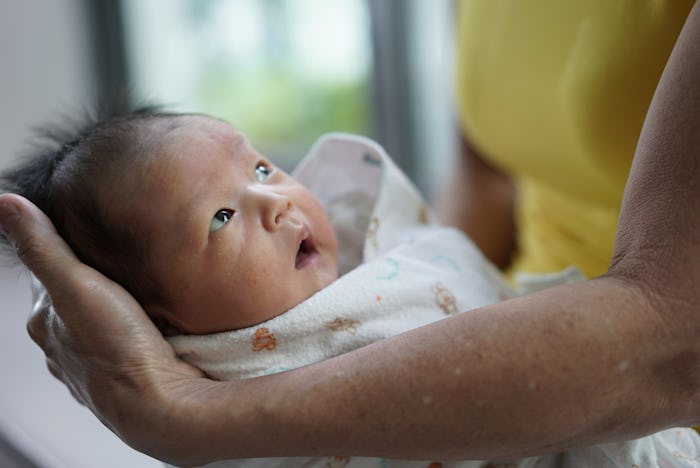Life

What Baby Thinks When They See Your Face
When you gaze into your baby's eyes, one fact is clear: a bright little person is looking back at you. Even from your baby's earliest days, you can tell that there's a spark of intelligence and personality behind those big eyes. That said, learning what happens in your baby's brain when they see you may still be something of a surprise. The social, emotional, and cognitive development that takes place from day one is pretty amazing.
For starters, babies have a fairly innate sense of facial recognition. According to Parenting, your baby will recognize your face early on — perhaps just a few weeks after birth. In fact, learning how to recognize mom is one of your baby's first goals (if infants can be said to have goals), and it may be based in your infant's basic brain development. According to a 2012 study in the Journal of Vision, infants can process and understand faces better than other objects between the ages of 4 to 6 months. Other things in the world, from apples to chairs, will take some time to understand. But just a few weeks out of the womb, your baby's brain recognizes and understands your face completely. Basically? Most facial recognition technology has nothing on an infant gazing at mom. That tiny brain has an amazing amount of processing power.
In addition to rapid facial recognition, babies also pick up on communication cues via facial expressions. As explained on Live Science, when your baby imitates your facial expressions, the action causes an emotional reaction to the baby as well. By mimicking your silly faces, your baby is learning some serious lessons about emotional connection and nonverbal communication. Who knew something as simple as a game of "Monkey See, Monkey Do" could have such a big impact on your little one's brain development?
Lastly, as your baby continues to grow, a simple game of peek-a-boo can reveal some serious cognitive advances. As explained by the BBC, babies develop a sense of object permanence around 7 months of age, so they understand that mom is not really gone when playing peek-a-boo: she's just playing a game. Understanding that you're not gone forever when your face is hidden behind your hands shows your baby's brain is adapting to the world ASAP. Basically, looking at your face sparks all kind of cognitive and emotional development in your little one.